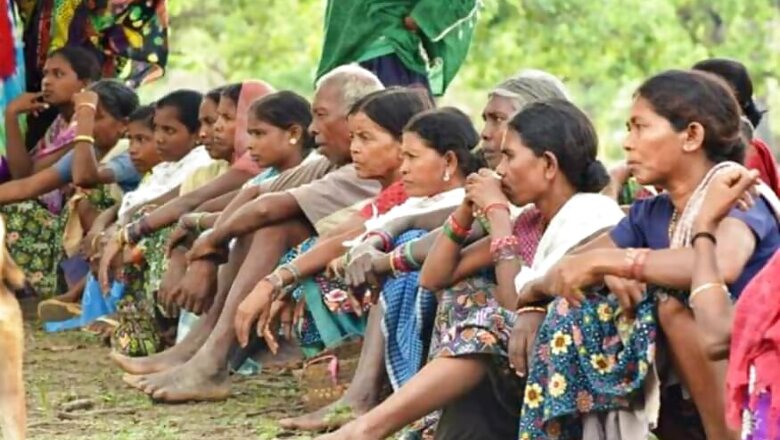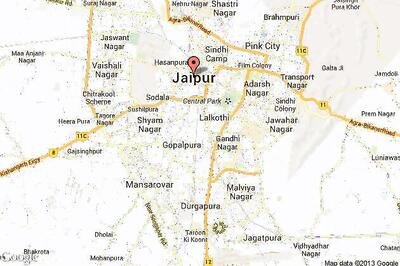
views
New Delhi: In a major reprieve for more than 10 lakh forest dwellers and tribals in various states, the Supreme Court on Thursday suspended its order that could have resulted in the forcible eviction of tribals.
A bench headed by Justice Arun Mishra put the January 10 order in abeyance following a plea by the Ministry of Tribal Affairs that had pleaded for a stay of the judicial order in the interest of the forest-dwelling Scheduled Tribes (FDSTs) and other traditional forest dwellers (OTFDs) across 16 states.
The bench remained critical of the MoTA's plea, observing it was perhaps in a slumber when the previous order was passed and that it cannot wake up one fine day with making new arguments.
It, however, agreed to examine whether the due process under the Forest Rights Act was followed by the state governments in deciding the claims of the forest dwellers and the process of adjudicating appeals before final rejection.
The court gave four months to the state governments for collating data and filing their detailed affidavits with regard to the processes followed in deciding claims and grant of ‘pattas’.
At the same time, the bench also clarified that the "forest land should not remain encroached by mighty and undeserving people”.
For this, it asked the state governments to apprise the court about the category of dwellers presently occupying the forest areas, along with a timeline to evict those who are not entitled to occupy such lands. The satellite survey of the forest lands will also continue, added the bench.
Earlier, Solicitor General Tushar Mehta submitted that the relationship between forest dwelling tribals and protection of environment is symbiotic. He urged the bench to examine the manner in which the claims had been rejected, prompting the apex court to order for eviction of the forest dwellers. "States haven't been following the procedure. In some cases, one-line orders are being passed," said the law officer.
At the outset, the bench did not take the MoTA's plea too well. "Were you in a slumber? Where were you when we passed this order? Go in a slumber, let the court pass its order and then come back for modification. You are rising now," retorted the bench.
But it subsequently agreed to examine the process followed by various states and fixed the matter for hearing next on July 10.
The ministry, in its application, has claimed that the top court should suspend its order and ask the state governments to submit details of rejection of claims by forest dwelling Scheduled Tribes FDSTs and other traditional forest dwellers OTFDs.
It pointed out that the court issued its order of eviction on February 13 based on the data adduced by the state governments regarding rejection of the claims by the forest dwellers.
"However, the said data did not provide the details of rejection," stated the plea, adding it has come to light that the claims of FDSTs and OTFDs were rejected in a summary manner where no due opportunity is provided to the claimants.
"It is uncertain whether the data furnished by the state governments accurately indicates whether the rejection orders were passed after observance of due process of law; compliance with principles of natural justice and whether appeal mechanisms have been properly exhausted. Without such information and compliance with the mandate of law in letter and spirit, the eviction of such tribal, would amount to serious miscarriage of Justice," said the Ministry.
It maintained that the first dwellers and tribals are extremely poor and illiterate people and not well informed of their rights and procedure under the Act.
"They live in remote and inaccessible areas of the forest. It is difficult for them to substantiate their claims before the competent authorities," stated the plea, adding the Forest Rights Act is a beneficial piece of legislation and deserves to be construed liberally in favour of the forest dwellers.
The ministry has therefore requested the bench to consider modifying its order of February 13 and direct the state governments to file detailed affidavits regarding the procedure followed and details of the rejection of claims
"And till then the eviction of tribal may be withheld. The eviction of tribal, without such information would cause serious prejudice to such tribal who have been residing in forests for generation," pleaded the application.
The court order on February 13 had come on a petition, demanding that all those whose claims over traditional forestlands are rejected under the law should be evicted by state governments as a consequence. In January 2016, the court had directed the state governments to furnish data regarding number of claims rejected and the action taken after the rejection of claim.
Subsequently, reports submitted by the state governments showed that more than 11 lakh claims were rejected, and the bench ordered the authorities to act in accordance with the law after rejection of their claims. The statistics, however, did not clarify whether each claim connote one person or a member of the family or something other.


















Comments
0 comment